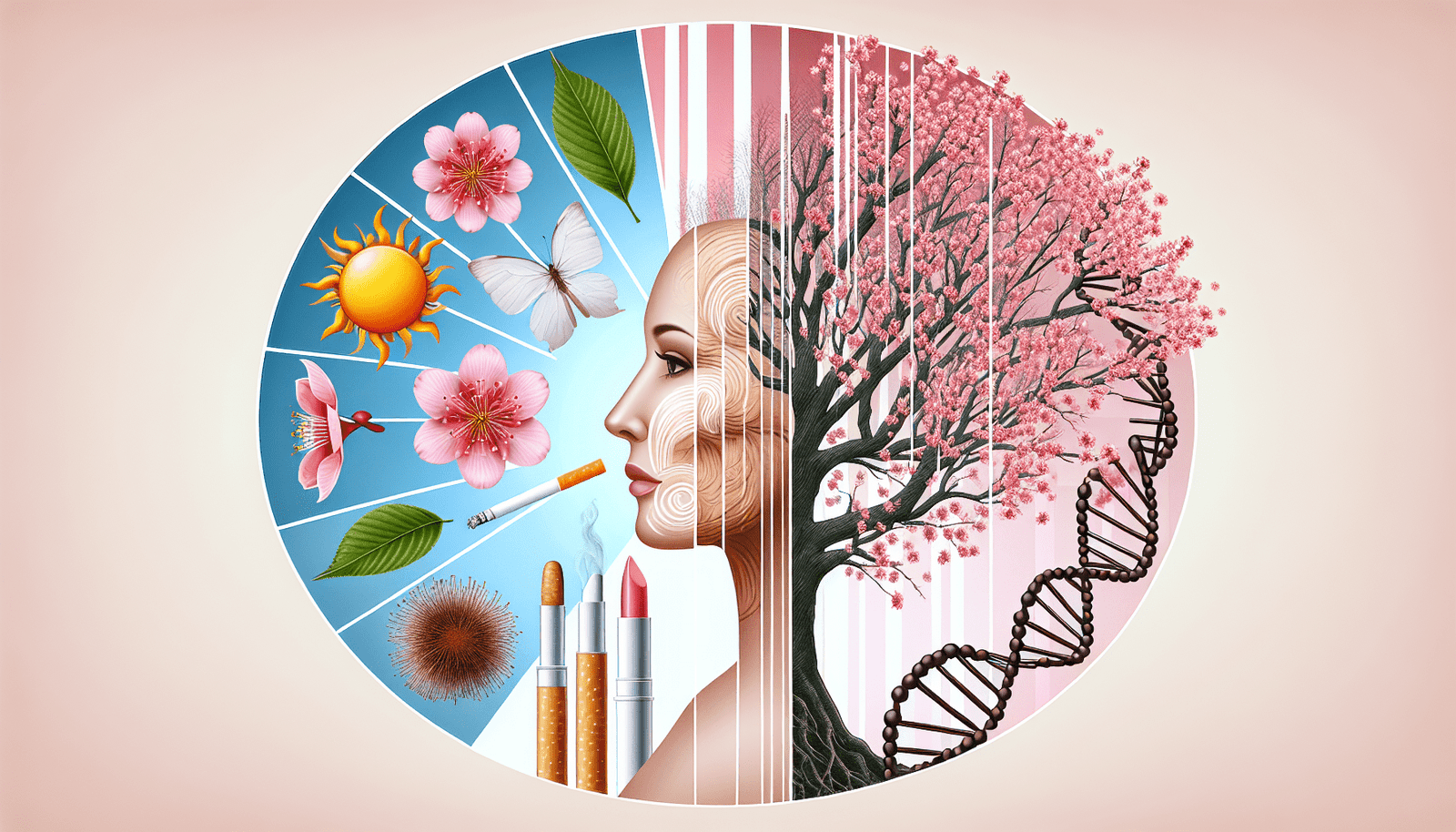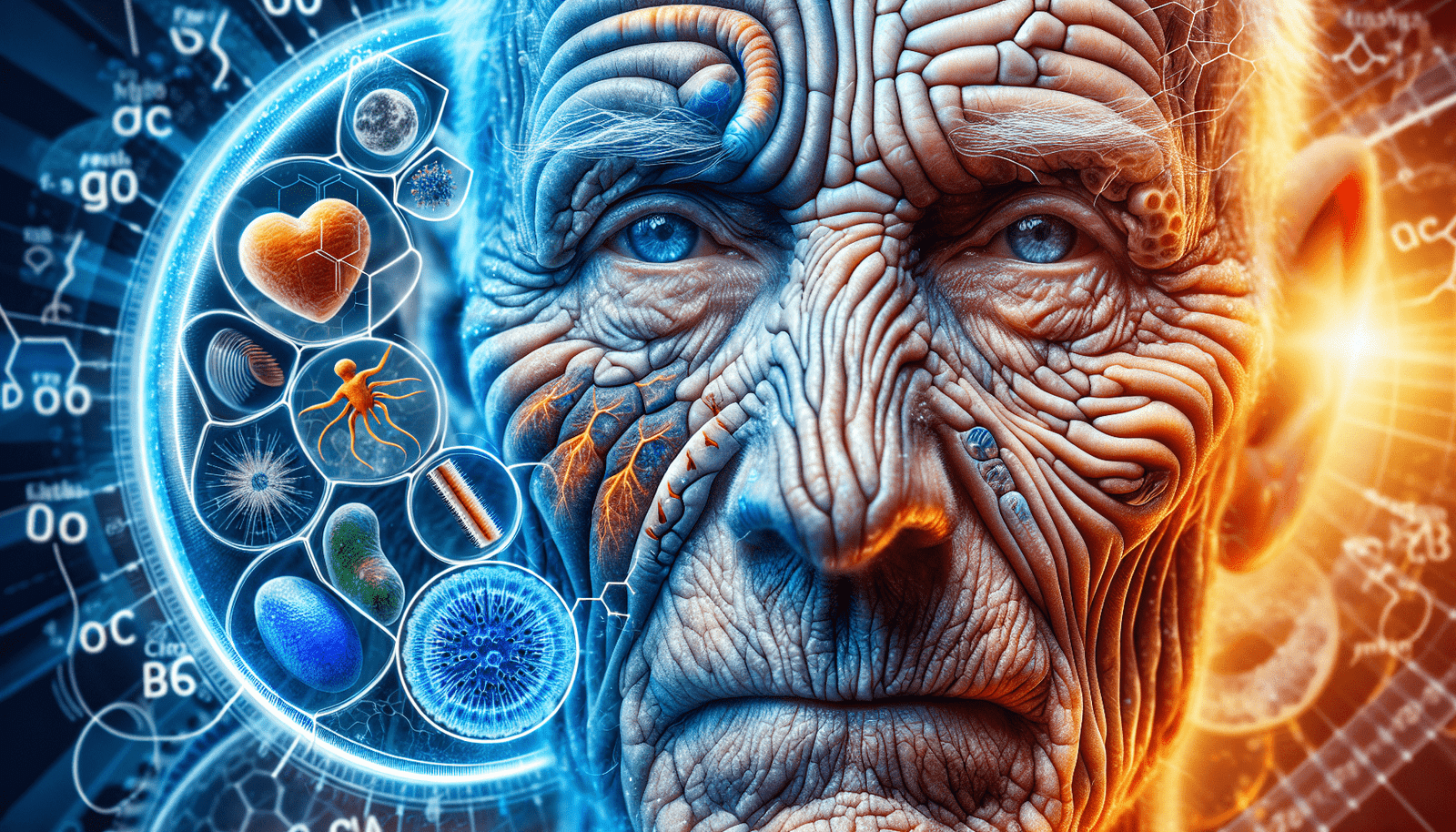Ah, wrinkles, those little lines that effortlessly sneak their way onto our faces as we age. They can be a source of frustration for some, while others embrace them as a badge of wisdom. But have you ever wondered what causes these fine lines to appear? In this article, we will explore the fascinating world of wrinkles and dive into the underlying causes that contribute to their formation. So, grab a cup of tea, get comfortable, and let’s unravel the mystery behind those pesky little marks of time.

Aging
As you age, your skin goes through various changes that can contribute to the development of wrinkles. One major factor is the decreased production of collagen and elastin, which are essential proteins for maintaining the youthful appearance of your skin. Collagen gives your skin its strength and structure, while elastin provides elasticity. With reduced production of these proteins, your skin becomes less firm and more prone to wrinkling.
In addition, as you age, there is a decrease in skin cell turnover. This means that your skin cells take longer to regenerate, leading to a buildup of dead cells on the surface. This can make your skin appear dull and contribute to the formation of wrinkles.
Furthermore, the loss of skin elasticity is another significant consequence of aging. The ability of your skin to stretch and bounce back diminishes over time, making it easier for wrinkles to form. The combination of decreased collagen and elastin production, slower cell turnover, and reduced skin elasticity all contribute to the visible signs of aging on your skin.
Sun Exposure
Spending time under the sun can have detrimental effects on your skin. The ultraviolet (UV) radiation emitted by the sun is a major culprit in the breakdown of collagen and elastin fibers. These fibers are responsible for maintaining the structure and firmness of your skin. When they are damaged, it can result in the loss of skin elasticity and the formation of wrinkles.
Additionally, sun exposure leads to the formation of free radicals in your skin. Free radicals are highly reactive molecules that can cause damage to your skin cells, including those responsible for producing collagen and elastin. The accumulation of free radicals over time can accelerate the aging process and contribute to the development of wrinkles.
To protect your skin from the damaging effects of the sun, it is crucial to wear sunscreen with a high SPF, seek shade during peak sun hours, and wear protective clothing such as hats and sunglasses.
Smoking
Smoking not only affects your overall health but also has a detrimental impact on your skin. One of the ways in which smoking contributes to wrinkles is by reducing blood flow to the skin. This decrease in blood flow means that your skin receives fewer essential nutrients and oxygen, which are crucial for maintaining its health and vitality.
Furthermore, smoking directly damages collagen and elastin fibers in your skin. The harmful chemicals in cigarette smoke can break down these fibers, leading to a loss of skin elasticity and the formation of wrinkles. The repeated exposure to cigarette smoke can also result in a yellowish tint to the skin, making it appear older and more aged.
Quitting smoking is not only beneficial for your overall health but also for the appearance of your skin. By quitting smoking, you can improve blood flow to your skin and reduce the damage caused to collagen and elastin fibers, ultimately leading to a smoother and more youthful complexion.
Repetitive Facial Expressions
Throughout your life, you constantly make facial expressions, from smiling to frowning and everything in between. While these expressions are a natural part of human communication, they can contribute to the formation of wrinkles over time.
When you make a facial expression, the underlying muscles contract. These constant muscle contractions can lead to the formation of dynamic wrinkles, which are wrinkles that appear when you make a certain expression and then disappear when your face is at rest. Over time, these dynamic wrinkles can become more pronounced and eventually develop into permanent wrinkles, even when your face is relaxed.
Areas of the face that experience frequent movement, such as around the eyes and mouth, are particularly prone to wrinkle formation. The repetitive folding and creasing of the skin in these areas can lead to the development of fine lines and wrinkles that become more prominent as you age.
While it is impossible to completely stop making facial expressions, being mindful of excessive facial movements and practicing facial muscle relaxation exercises can help minimize the formation of wrinkles over time.
Sleeping Positions
Believe it or not, the position you sleep in can have an impact on the development of wrinkles. When you sleep with your face pressed against a pillow or in a certain position for an extended period, it can cause pressure on your facial skin. This prolonged pressure can compress the collagen fibers in your skin, leading to the development of wrinkles over time.
Certain sleeping positions, such as sleeping on your side or stomach, can contribute to the formation of wrinkles on the side of your face and on your chest. These wrinkles are often referred to as sleep lines and can become more pronounced with age.
To minimize the risk of sleep lines, try sleeping on your back or using a silk or satin pillowcase that is gentler on the skin. Additionally, making sure your skin is well-moisturized before bedtime can help improve its flexibility and reduce the likelihood of wrinkle development.
Poor Nutrition
The saying “you are what you eat” holds true when it comes to the health and appearance of your skin. Poor nutrition can have a negative impact on your skin health and contribute to the development of wrinkles.
Lack of essential nutrients, such as vitamins, minerals, and antioxidants, can impair your skin’s ability to repair and regenerate itself. These nutrients play a crucial role in collagen synthesis, hydration, and overall skin health. Without an adequate supply of these nutrients, your skin may become dull, dry, and more susceptible to wrinkling.
Furthermore, inadequate hydration can also contribute to the formation of wrinkles. When your body is dehydrated, your skin loses its plumpness and elasticity, making it more prone to developing fine lines and wrinkles.
To promote skin health and reduce the risk of wrinkles, it is important to maintain a well-balanced diet, rich in fruits, vegetables, whole grains, lean proteins, and healthy fats. Additionally, staying hydrated by drinking plenty of water throughout the day is essential for keeping your skin hydrated and resilient.
Excessive Alcohol Consumption
Excessive alcohol consumption can have a negative impact on your skin’s appearance and contribute to the formation of wrinkles. One of the primary effects of alcohol on your skin is dehydration. Alcohol is a diuretic, which means it increases urine production and can lead to dehydration. When your body is dehydrated, your skin loses moisture, becoming dull and less elastic, making wrinkles more noticeable.
Moreover, alcohol can decrease skin elasticity over time. Chronic alcohol consumption reduces the production of collagen, the protein responsible for maintaining skin firmness and structure. This can result in sagging skin and the formation of wrinkles.
Additionally, alcohol consumption can lead to inflammation and free radical damage in the body. Inflammation can accelerate the aging process and impair collagen synthesis, while free radicals can cause oxidative stress and damage skin cells, contributing to wrinkles.
To promote healthy skin and reduce the risk of wrinkles, it is important to consume alcohol in moderation and ensure you stay hydrated by drinking water alongside alcoholic beverages.
Genetics
Your genetic makeup plays a significant role in determining how your skin ages and the likelihood of developing wrinkles. Some individuals may be genetically predisposed to wrinkle formation, meaning their skin may naturally be more prone to developing wrinkles at an earlier age.
Genetic variations in collagen and elastin genes can also influence how your skin ages. These genes determine the quality and quantity of collagen and elastin fibers produced by your body. If there are genetic variations that affect the production or structure of these proteins, it can impact the resilience and elasticity of your skin, contributing to the development of wrinkles.
Individual differences in the aging process can also be attributed to genetics. While some individuals may age gracefully with minimal wrinkles, others may experience more pronounced signs of aging, including wrinkles, due to their genetic makeup.
While you cannot change your genetic predisposition to wrinkles, maintaining a healthy lifestyle and practicing good skincare habits can help minimize their appearance and keep your skin looking its best.

Environmental Factors
Various environmental factors can contribute to the development of wrinkles. Pollution is one such factor that can have a negative impact on your skin. Pollutants in the air, such as particulate matter, can penetrate your skin and cause oxidative stress, leading to the breakdown of collagen and elastin fibers. This can result in a loss of skin elasticity and the formation of wrinkles.
Toxins in the environment, such as cigarette smoke and certain chemicals, can also damage the skin and accelerate the aging process. Exposure to these toxins can lead to inflammation, collagen degradation, and the development of wrinkles.
Additionally, harsh weather conditions can also contribute to the formation of wrinkles. Extreme temperatures, strong winds, and dry air can strip your skin of moisture, making it more susceptible to wrinkling. Protecting your skin from these environmental factors, such as wearing appropriate clothing, using moisturizers, and seeking shelter when necessary, can help minimize their impact on your skin.
Lack of Skincare Routine
A consistent and effective skincare routine is essential for maintaining healthy and youthful-looking skin. Failing to establish and follow a proper skincare routine can leave your skin vulnerable to the development of wrinkles.
Insufficient moisturization is one common mistake that can lead to wrinkling. Dry skin is more prone to the appearance of fine lines and wrinkles, as it lacks the moisture necessary to maintain its plumpness and flexibility.
Another key aspect of skincare is sun protection. Failing to use sunscreen or neglecting to reapply it regularly can leave your skin exposed to harmful UV radiation, leading to collagen and elastin breakdown and the development of wrinkles.
Inadequate cleansing and exfoliation can also contribute to the formation of wrinkles. If your skin is not properly cleansed, dirt, oil, and impurities can accumulate, leading to clogged pores and skin damage. Regular exfoliation helps remove dead skin cells and promotes cell turnover, which can enhance your skin’s appearance and minimize the appearance of wrinkles.
To maintain healthy and youthful-looking skin, it is important to establish a skincare routine that includes cleansing, moisturizing, sun protection, and exfoliation. Additionally, using skincare products that are suitable for your skin type and addressing your specific concerns, such as using anti-aging products, can help minimize the appearance of wrinkles and promote overall skin health.
